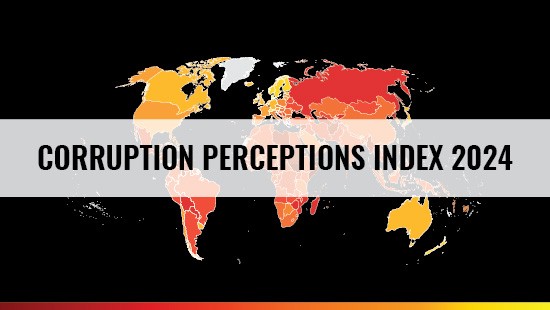Press Release
Dhaka, 27 May 2024: Similar to national elections, local government elections are increasingly characterized by one-party dominance and the growing influence of business interests, Transparency International Bangladesh (TIB) observed. These observations were made during a press conference held to present the data analysis and review of affidavits of candidates for the Third Phase of the Sixth Upazila Parishad Election-2024. Besides, TIB called on the Election Commission (EC), National Board of Revenue (NBR), and Anti-Corruption Commission (ACC) to investigate the candidates' declared income and assets to ensure they are consistent with legitimate income and to check for potential tax evasion.
TIB has continued its analysis of candidate affidavits for the third phase of the Upazila Parishad election. TIB's findings highlight a significant disparity in income and wealth growth between previously elected officials and non-elected candidates. Over the past decade, the income of previously elected local representatives had increased by 681.37%, and their movable assets by 1010.12%. In contrast, non-elected candidates have seen income grow by 71.71% and assets by 31.35%. This indicates a rapid accumulation of wealth and income associated with holding power.
Analyzing the affidavits, TIB found that business candidates continue to dominate the third phase of the Upazila Parishad election, similar to the national election and the first two phases of the upazila election. Businessmen candidates make up 58.14% of the total, a 7% increase from the 4th upazila election. Specifically, 66.53% of chairman candidates, 68.99% of vice-chairman candidates, and 31.56% of female vice-chairman candidates list business as their profession. Additionally, 48.54% of female vice-chairman candidates identify as housewives, with 14.5% of these candidates having income from business. Overall, 15.14% of all candidates are associated with some business organization.
Referring to the arbitrary influence of businessmen at the upazila elections, TIB Executive Director Dr. Ifekharuzzaman said, “In public representation, the presence of public interest has become rare, allowing personal interests to flourish through the abuse of power. It is natural for business people, like any other professionals, to enter politics. However, the concern is whether their aggressive participation aligns with the right political process and serves public welfare. The current situation suggests that the profit oriented goal is driving businessmen's interest in politics, leading to family oriented power-grab at the local level.”
Dr. Ifekharuzzaman also highlighted how holding public office is viewed as a "license to abuse power," allowing individuals to exert influence from market regulation to safeguarding business interests in policy decisions. Moreover, he lamented the lack of accountability for those involved in irregularities, corruption, or controlling market syndicates. Often, the very entities responsible for enforcing accountability are intertwined with these groups, serving as their beneficiaries, partners, and protectors. This profit-centric approach in politics is gaining momentum, underscoring the urgent need for the government to demonstrate goodwill and honor its election manifesto pledge to establish transparent, responsible governance and combat corruption.
The analysis reveals that approximately 37% of the candidates have an income below 3.5 lakh taka, indicating they have no taxable income. In contrast, 10.5% of candidates report an income exceeding 16 lakh taka. For chairman candidates, 24.21% have an income above 16.5 lakh taka, while only 3.45% of other candidates have this amount. Conversely, 19.5% of chairman candidates have an income below 3.5 lakh taka, compared to 45.74% of other candidates. This suggests that wealthier individuals are more likely to run for chairman positions. Additionally, 106 candidates in the third phase have assets exceeding 1 crore taka, with the number of multimillionaires nearly quadrupling compared to the previous election.
According to the affidavit analysis of the third phase candidates, 16% are currently accused in various cases, while 21.63% had past accusations. Currently, 7 candidates face over 10 cases, with the highest being 27 cases against a chairman candidate. In the past, 37 candidates had over 10 cases, with a vice chairman candidate also facing 27 cases. The charges include assault, breach of public peace, intimidation, harassment, abuse of women and children, and fraud.
The analysis reveals that the income of a chairman increased by 2889.68% over 10 years, and by an astounding 10422.04% in just 5 years. In the same 10-year period, movable assets grew by up to 18793%, while in 5 years, the assets of spouses and dependents increased by up to 5400%. Upazila Parishad representatives have surpassed parliamentarians in the growth of movable assets, with a chairman's assets increasing by over 9850%, compared to the highest increase of 3065% for a Member of Parliament.
Regarding the unusual rise in earnings and assets, the TIB Executive Director remarked, “The increase of income and assets is usually expected, however if these are increased unnaturally then it may raise questions. It's also alarming that 37 percent of candidates claim they have no taxable income in their affidavits, which is unbelievable. Additionally, many disclosed their income but obscured its sources, implying that their earnings may not be legitimate. The Know Your Candidate (KYC) dashboard developed by TIB serves as a vital data repository for relevant regulatory bodies. For instance, a thorough investigation by the National Board of Revenue (NBR) could reveal extensive tax evasion. Moreover, it is imperative for the NBR, Election Commission, and Anti-Corruption Commission to proactively verify the legitimacy of the information provided in candidates' affidavits and ensure that their reported incomes and assets are consistent with legal sources. However, these regulatory bodies seem indifferent to these duties. We urge the concerned authorities to rigorously investigate the findings of our analysis.”
TIB Assistant Coordinator Rifat Rahman presented the organization's analysis and observations at the press conference. TIB Executive Director Iftekharuzzaman and TIB Adviser-Executive Management Sumaiya Khair were also present along with the research team members, including Outreach and Communication Division’s Director and head of the research team Mohammad Tauhidul Islam, Assistant Coordinator Ikramul Haque Evan, and K. M. Rafiqul Alam TIB conducted a multi-dimensional and comparative analysis of eight data points from approximately 4000 affidavits across 111 upazilas for the fourth, fifth, and sixth upazila council elections. The overall findings and upazila-wise comparisons are available to the public on TIB's website under the “Know Your Candidates” dashboard.
Find the link: https://www.ti-bangladesh.org/articles/research/6998
Media Contact:
Mohammad Tauhidul Islam
Director, Outreach and Communication
Phone: +8801713107868
Email: tauhidul@ti-bangladesh.org







